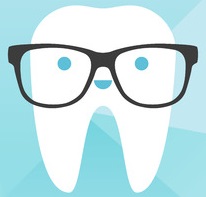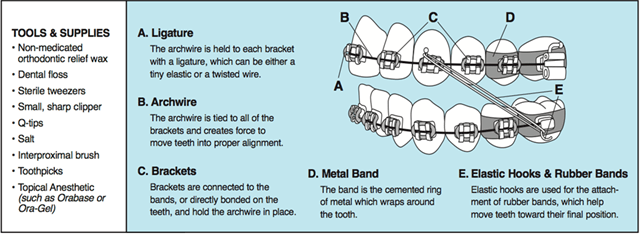Introduction
Orthodontic emergencies can occur unexpectedly, causing discomfort and anxiety. While it is always recommended to seek professional help, there are certain steps you can take at home to manage these emergencies temporarily. This article will guide you through some common orthodontic emergencies and provide you with practical tips to alleviate discomfort until you can visit your orthodontist.
Broken or Loose Brackets
If you notice a broken or loose bracket, it is important not to panic. Gently remove any loose pieces and keep them in a safe place. If the bracket is still partially attached, you can use orthodontic wax to secure it in place temporarily. Avoid eating hard or sticky foods that may further damage the bracket, and schedule an appointment with your orthodontist as soon as possible.
Irritation from Wires
Orthodontic wires can sometimes cause irritation or discomfort, especially if they shift or poke out. If a wire is poking your cheek or gums, you can try using the eraser end of a pencil to gently push it back into place. Applying orthodontic wax over the irritating area can also provide temporary relief. If the wire is causing severe pain or cannot be adjusted, contact your orthodontist for assistance.
Soreness and Discomfort
It is common to experience soreness and discomfort after orthodontic adjustments. Over-the-counter pain relievers, such as ibuprofen, can help alleviate the pain. Rinsing your mouth with warm saltwater can also provide relief. Avoid hard or chewy foods that may exacerbate the discomfort, and stick to softer options until the soreness subsides.
Loose Bands

If you have a loose band, try to keep it in place by applying orthodontic wax. Avoid eating sticky or hard foods that could cause the band to come off completely. Contact your orthodontist to schedule an appointment for re-cementing the band.
Protruding Wires
Protruding wires can be uncomfortable and may cause irritation. Using a cotton swab or the eraser end of a pencil, gently push the wire.
Summary
Orthodontic emergencies can be distressing, but with the right knowledge and temporary solutions, you can effectively manage them at home. This blog post will cover various orthodontic emergencies, including loose brackets or wires, mouth sores, and discomfort from orthodontic appliances. By following the provided tips, you can minimize pain, prevent further damage, and ensure a smoother orthodontic trea tment journey. Remember, it is crucial to consult your orthodontist as soon as possible to address the issue properly and avoid any complications.
- Q: What should I do if a wire is poking my cheek or gums?
- A: Use the eraser end of a pencil to gently push the wire into a more comfortable position. If that doesn’t work, cover the end of the wire with orthodontic wax or a small cotton ball until you can see your orthodontist.
- Q: What should I do if a bracket or band becomes loose or falls off?
- A: If the bracket or band is still attached to the wire, leave it in place and apply orthodontic wax to prevent irritation. If it has completely come off, keep it safe and bring it to your next orthodontic appointment.
- Q: What should I do if a separator (spacer) falls out?
- A: Contact your orthodontist to determine if it needs to be replaced. Avoid sticky or hard foods that may cause the other separators to come out.
- Q: What should I do if my mouth or teeth are sore after an adjustment?
- A: It is normal to experience some discomfort after an adjustment. Rinse your mouth with warm saltwater and take over-the-counter pain relievers as directed by your orthodontist.
- Q: What should I do if a piece of my braces breaks or comes loose?
- A: If a piece of your braces breaks or comes loose, contact your orthodontist immediately for guidance. Avoid touching or removing any loose parts to prevent further damage.
- Q: What should I do if I have a dental emergency unrelated to my braces?
- A: If you have a dental emergency unrelated to your braces, such as a severe toothache or a broken tooth, contact your regular dentist for immediate assistance.

Welcome to my website! My name is John Nangle, and I am a dedicated and passionate Pediatric Dentist with a strong focus on Cosmetic Dentistry, Orthodontic Solutions, and Dental Implants. With years of experience in the field, I am committed to providing exceptional dental care to children and adolescents, ensuring their oral health and beautiful smiles.

